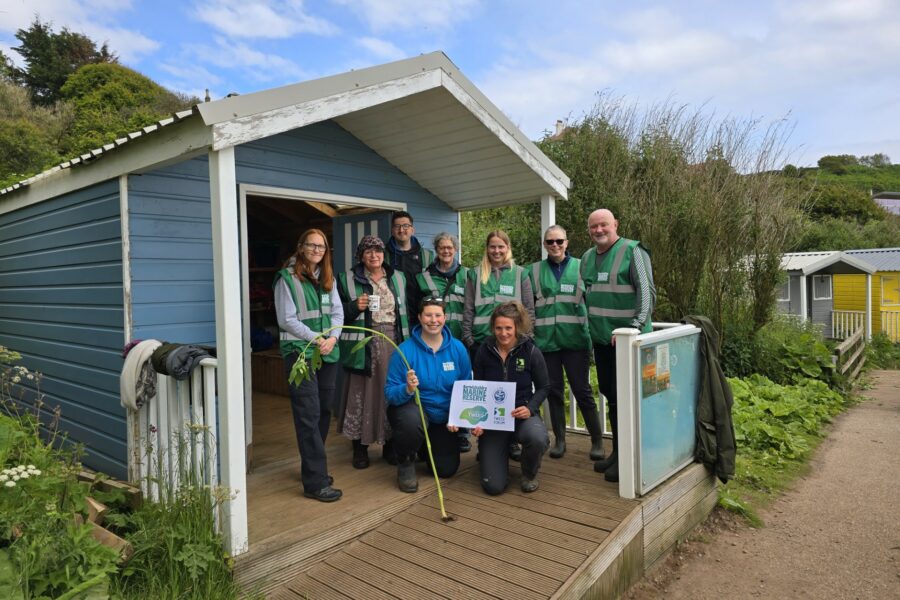Borders environmental charity, Tweed Forum has praised the efforts of volunteers in the Scottish Borders and North Northumberland for their help in tackling invasive non-native plant species across the Tweed catchment.
The plants, which include giant hogweed, Himalayan balsam, Japanese knotweed and American skunk cabbage, can damage river habitats and even pose a danger to human health.
Each year, as the growing season begins, Tweed Forum calls on a network of dozens of specially trained local people including anglers, boatmen and other river and nature enthusiasts, to help locate and root out these invasive plant species.
Amongst the most dangerous is giant hogweed, which resembles a huge cow parsley when mature and can grow up to 16ft tall. It has toxic sap which can cause severe burns and blistering if it comes into contact with the skin. Last year alone, Tweed Forum’s volunteers spent over 300 hours helping to remove thousands of giant hogweed plants from the catchment.
Tweed Forum is again encouraging members of the public to report sightings of giant hogweed, as well as other key invasive plant species. Images and information to aid identification are available on the Tweed Forum website. Giant hogweed should not be touched.
Tweed Forum’s Invasive Species Project Officer, Emily Iles is currently in the process of delivering equipment to volunteers in readiness for this year’s growing season. She said:
“Our work tackling these non-native invasive plants couldn’t be done without the support of our amazing volunteers who really go the extra mile to help improve the river environment and provide multiple ecological benefits. We’re incredibly grateful for their support, and that of the local community who reporting plant sightings that our teams can then deal with.”
Tweed Forum’s invasive species control work is an important element of the £25 million Destination Tweed river revitalisation project. This includes the creation of a 113-mile source to sea River Tweed Trail in addition to multiple environmental improvements. Tackling invasive plant species will help to make the river environment more accessible for river users, reduce riverbank erosion and improve plant and wildlife biodiversity. Tweed Forum is also tackling non-native species on the Northumberland coast as part of the EU LIFE Wader initiative.
